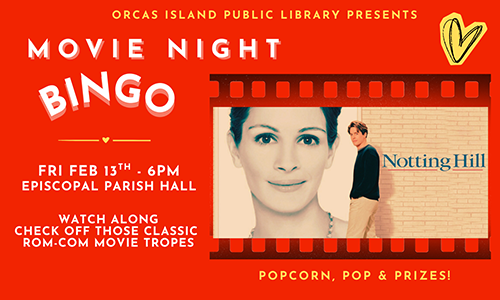||| SUN DAYS ON ORCAS by EDEE KULPER |||
Happy Thanksgiving weekend and Merry Christmas season!
The rain has provided ample time to gather ‘round the glowing screen and ponder life as it used to be and where it’s headed. Always in search of fascinating documentaries, we watched the new Netflix series Countdown: Inspiration4 Mission to Space about the four civilian astronauts that SpaceX sent up to orbit the Earth for three days.
I got to thinking about what “normal” was when I was a kid. Back then (about 40 years ago), only rich people had king size beds. I had a few stuffed animals and some My Little Ponies, but no one I knew had shelves and closets full of toys.
Whatever was on the radio was what we had to listen to. Answering machines didn’t exist. Cordless phones were a fantasy. The channel knobs on a TV went up to 12, only half of them worked, and stations signed off at midnight, going to gray static for the rest of the night.
Divorce, at least where I lived, was either really rare or no one talked about it. Only one person in my class had parents who were divorcing, and I remember the idea of it was shocking to the rest of us.
Today, we have access to just about anything we want within two days at the tap of a key and a link to our bank account.
Adults and kids have shelves and closets full of stuff – fairly affordable, high-tech stuff from fancy tchotchkes to amazing electronics. It’s weird to think of a king-size bed as a marker of status today, especially when people who can’t afford much drive nice cars and buy expensive shoes nonetheless.
We can watch anything, listen to anything, film and edit our own movies, play and record our own music, write and publish our own books, and earn a degree – all on the same device.
Personal relationships are all over the place.
If today we’re sending civilians into space who don’t need to be astrophysicists, pilots, or mechanics, what will tomorrow look like?
Our teenage son has explained to me that we won’t even need much “stuff” in the future – it will mostly be virtual. Our jobs, our college courses, our leisure activities, our friendships, and our marriages will all exist in the aether. We’ll only need tiny apartments in which to keep our VR treadmills (or whatever they are), some food, and a small bed. He says it could actually be a boon for the environment. Hmmm.
That got me thinking about biology. If anything goes in the virtual world, anything will be available when it comes to relationships. Want an easier marriage with a VR spouse? How about a hermaphroditic VR partner so you don’t have to choose a gender? Would you like to switch your own parts when you’d like? There’s so much flexibility when your form is malleable.
What about our brains? We went from valuing physical skills and handing down our knowledge of the land for thousands of years to going to colleges and picking majors in which to specialize. What will eclipse skills and knowledge in the future? Will it be an attribute that has little significance in reality but means everything in the metaverse?
Someday, when people are clambering to go to Mars and living in virtual places, you will find me walking along Crescent Beach or driving along California’s Highway 1 – a lone explorer in a vast, long-considered-“dull” reality, watching birds sing and waves crash, living day-to-day on levels of dopamine so low that they’re unheard of.
Sure, the adrenaline from getting to do anything I can dream up inside my headset sounds exciting. But I sure love good ol’ boring life and all it has to offer even more.
Please, this Christmas and beyond, do not give me or my progeny anything relating to virtual reality. I’m not quite ready to abandon this wonderful life.
**If you are reading theOrcasonian for free, thank your fellow islanders. If you would like to support theOrcasonian CLICK HERE to set your modestly-priced, voluntary subscription. Otherwise, no worries; we’re happy to share with you.**







